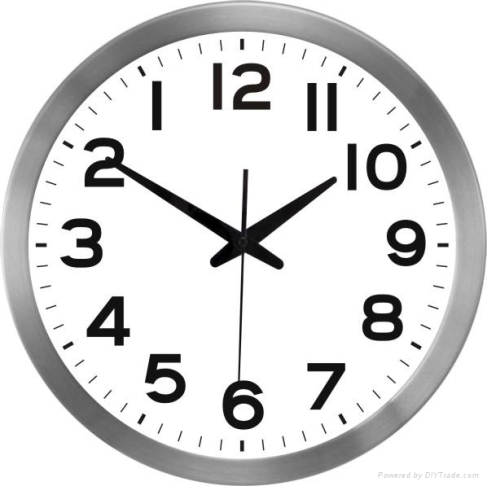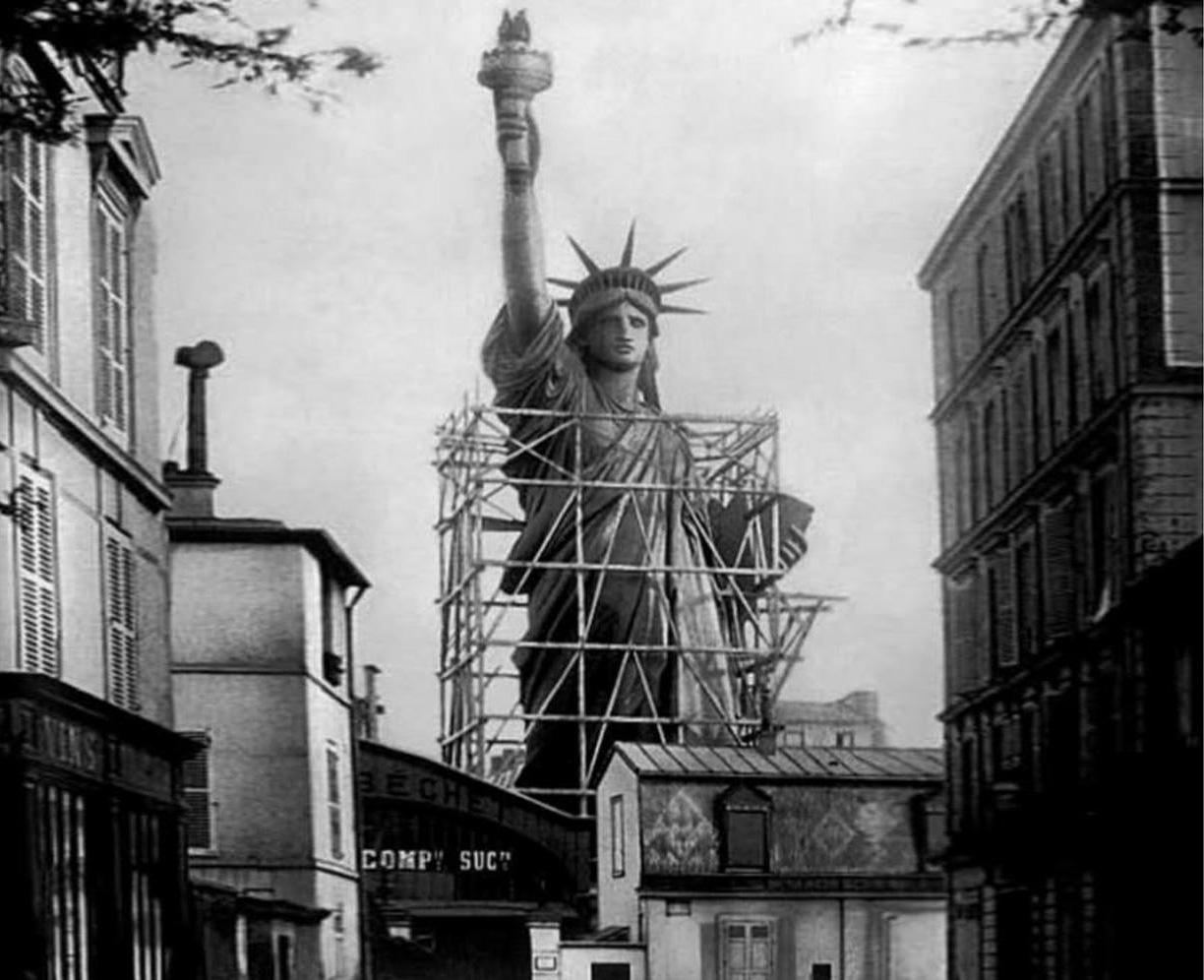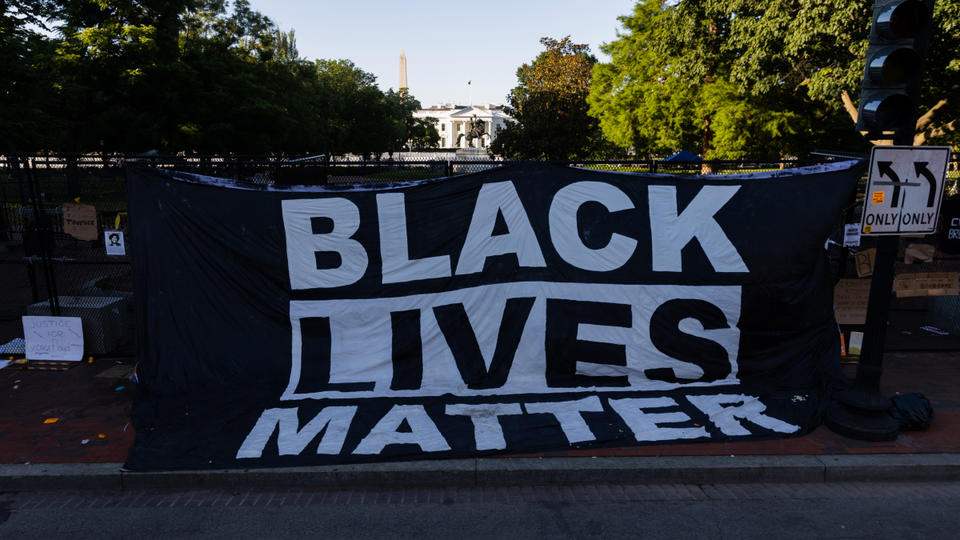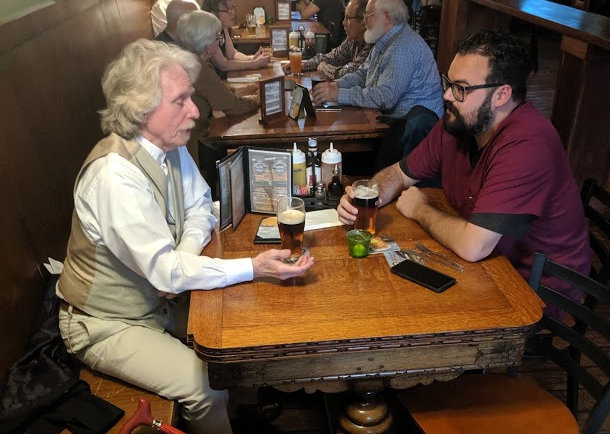
More than anything else I see online these days are comments about what life after Covid 19 will be like. Some people talk about “going back to normal,” in other words, a return to the status quo. Some people talk about a future that excludes things that were considered normal prior to the pandemic but are, in their view, unjust, unworkable, or unacceptable in a democracy.
I’d like to talk a bit about both of these points of view; because whatever kind of brave new world we move into, one thing is obvious: to preserve what is good, or to build something better, we have to have an idea—a national plan—that is both acceptable to the majority and actually achievable. To achieve both these goals, we have to start by recognizing that we cannot turn back the clock.
After all, although we may talk about going back to how things were, we must not fool ourselves. People have died. Businesses have closed and are gone. Ways of doing things have changed permanently. For my friend who teaches in Brooklyn, the fact that one of her 14-year-old students died of Covid 19 changed her life. Not as much as the grieving family, of course. But for her, and that family, and for all of us, the world has changed. Nothing anyone can say or do or think will alter that fact. To pretend otherwise is not just naïve, it is dangerous.
It is naïve because it gives us permission to discount that life lost and that future denied. It is dangerous because it allows us to make mistakes that will continue the pattern of failure and death that has been our recent history. Life goes on, we say. Yes, it does, and it never turns back. Not ever. Denial may be one of the seven stages of grief, but it is no way to organize the world. We must move on to acceptance that the world has changed. And when we accept that we have a chance of shaping the change that comes. Until we do, we are helpless.
One of the most important things we must do, if we are to make a better future, is to realize that we have clung to myths and misunderstandings that have hobbled us and held us prisoner. And first, I want to address one of the most insidious misunderstandings in our national psyche—the illusion of personal freedom.
No one has ever been free to do whatever they want, and yet the myth of personal freedom is trotted out on a daily basis to justify the most horrendous antisocial acts. Let’s just consider this for a minute.
First of all, you are not free to do things that are physically impossible. You cannot fly. You cannot breathe underwater. There is no law that allows you to live forever. This much I hope is obvious. But more relevant is that fact that since the first hunting band of Homo Sapiens got together to kill a mammoth, we have had to cooperate with one another. If Ugg is told to stand on the clifftop and drop the stone on the mammoth’s head and he goes off fishing instead, he won’t get any mammoth to eat or mammoth hide to wear.
But more importantly, neither will any other member of the tribe. Because without cooperation, the mammoth doesn’t get killed. And the whole tribe, including Ugg, dies of starvation and cold.
Fast forward forty thousand years. The rules are more complex, but the outcome is the same. As a society, as a country, we rise or fall together. This is not a pious hope, it is an inescapable fact.
Now, to examine this idea that we have undeniable freedoms, I want to highlight one in order to look at another.
The second amendment of the Constitution states, “A well-regulated Militia being necessary to the security of a free State, the right of the people to keep and bear Arms shall not be infringed.” This has been interpreted in a number of ways over the years, but in general it is taken to mean that in the United States, private citizens can own weapons, in particular, firearms, guns. All right, let’s take that as a given. People can have guns. Many people also assert that, as they can have guns, they are allowed to carry them in the street. Now, this is a bit more contentious, but for the sake of argument, let’s accept that premise. But can you randomly fire them—just walk down the street and pull out your pistol and shoot someone? President Donald Trump’s assertion that he could do so in the middle of Fifth Avenue in New York and not be arrested notwithstanding, randomly shooting people is not allowed. So, the right to bear arms is limited. You can have a gun, but when you start shooting, the law quickly comes into play.
What about randomly waving the gun around, even if you are not shooting it? What about pointing it at people? I think most people would agree that the police would take a dim view of this, and interfere, and quite possibly shoot you. Again, what you can do with your gun is limited.
Now, let us say you take a gun that is not loaded, or is loaded with blanks, and go into a shop and start pointing it at people, or firing off the blank shells. Again, this could get you arrested or killed. The fact that the gun was in fact not dangerous is not taken into consideration. Threatening someone with a gun can be an offence. Again, your gun rights are restricted, and I think just about everyone would agree this is a good thing.
All legislation aimed at controlling firearms is based on these ideas: people for whatever reason should not act irresponsibly with guns because guns can cause harm and even death. All laws to restrict access to guns are based on this idea.
Now, it would be considered irresponsible if I were to take a box of loaded guns into a kindergarten and start handing them out to the children. If the children, not understanding the possible effects of playing with guns were to shoot and injure or kill themselves, or another child, or their teacher, this would be a tragedy, and I would be to blame. The child who pulled the trigger or dropped the gun would be traumatized, but they at least would not be responsible. I would. And for such a stupid action I would be sent to prison and quite rightly.
And if the box only held some guns with live ammunition, and some with blanks, and some that were unloaded, would this be more acceptable? It would not. Because, even though the chances of someone getting killed would be lessened, the risk would still be too high to be allowed by any rational person.
These observations about the restricted freedom in our society concerning one of the rights that are definitely enshrined on our laws are leading me to another case of restricted freedom currently being enforced. This is the several restrictions regarding social distancing and the wearing of masks.
The Covid 19 virus is like a giant super-sized container full of guns that has been randomly dumped into our midst. Willy-nilly we have been like a kindergarten full of five-year-olds who may (or may not) have grabbed a gun (or a toy pistol or an unloaded gun) and have popped it into our pocket. Because the truth is, we really don’t know how dangerous the thing we have is. It may be harmless. It may only be a B-B gun. It may hold blanks. Or it may kill the next person we meet. What is more, unlike the guns in the kindergarten, these guns multiply. They spread from person to person until we have no idea who is carrying a loaded Mauser and who is just glad to see us. And, because we don’t know who is armed with Covid 19, we have to treat everyone as armed and dangerous.
Any state governor or city father who lets kids run around with potentially lethal weapons would be thrown out of office. Any state governor or city father who lets adults do the same thing would be thought insane.
Yet the right to bear arms is no different than the right to leave our homes and do what we want. By which I mean, when either of these two things become dangerous to ourselves and others, those rights are quite rightly curtailed. They must be.
And the fact that no one has been shot recently does not mean that all the guns are unloaded or safely put up out of reach. By comparison with checking to see if someone is carrying a weapon, testing for Covid 19 is rather more complicated. It’s going to take time. But, for the good of the whole of our country, of the world, we must take that time.
As Lois Beckett in the Guardian said, “Americans don’t have much of a national vocabulary for talking about collective action and sacrifice. Jon Stokes, a gun rights activist from Austin, Texas, has strong opinions about tyranny and freedom. But he said he was frustrated that some of his usual allies did not seem to understand that dealing with a novel virus, in a country where no one has immunity, required a different kind of politics.
‘Our rights are being violated. That is all actually real,” Stokes said. “But this is one of the few times when that’s OK. Pandemics call for a collectivist response. They don’t work without one.’”
Now, I would argue that no right is being violated by the current lock-down regulations. Is the law against murder a violation of the first amendment? No judge in the history of the US has thought so. Likewise, there is no right to endanger your neighbor whether by violence or disease. In fact, virtually all of our laws are about denying this supposed right. As I have mentioned in an earlier sermon, my “right” to swing my fist ends at the tip of your nose.
Your right to own and use a gun stops the instant you point it at me without justification. And remember, what constitutes justification is a tricky subject.
Your right to carry a deadly virus stops the moment you step out of your house.
There is absolutely no difference between playing Russian roulette in a shopping mall and going into public while this deadly infection is still rampant in the country. And remember, every single person out there is, or might be, carrying a pistol with a bullet in the chamber. This has nothing to do with rights.
The title of this sermon is “There’s No Going Back.” I said at the beginning that in order to move forward and make the changed world better than it was before, we have to change some of our underlying assumptions. One of these assumptions is the idea that our rights take precedence over our responsibilities. The idea that we have some unalienable right to do what we want, when what we want is a myth and a dangerous one. It is the mindset of a dick.
In one way, Ugg may be said to have the right to go fishing. But when the tribe is at risk, Ugg has to step up and play his part. Screaming and shaking his fishing pole won’t cut it, because not only will the tribe starve, Ugg will starve, too.
Building our shared responsibility to each other into our national psyche is a step we have to take. Because our unwillingness to do so has already cost 100,000 lives.









